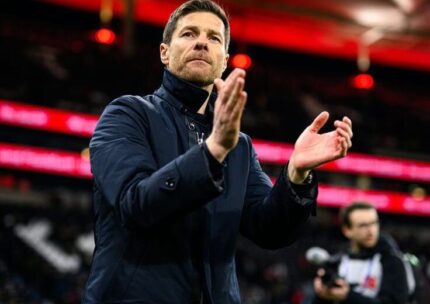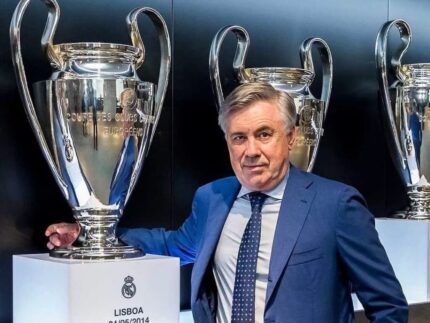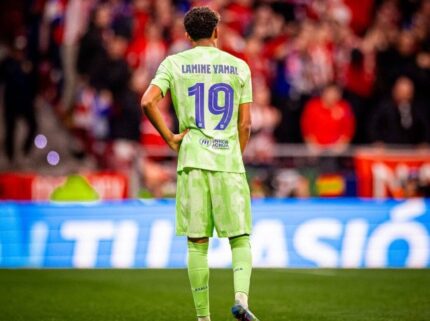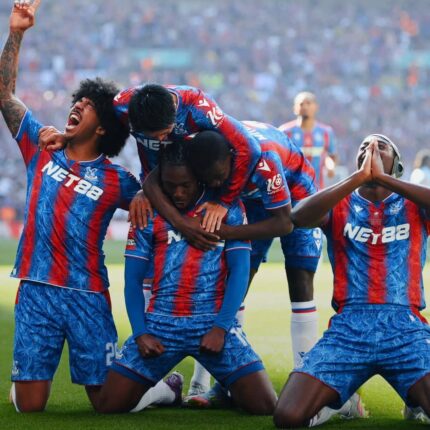Few footballers can boast a career as accomplished as Xabi Alonso’s. From his early days at Real Sociedad to his triumphs at Liverpool, Real Madrid, and Bayern Munich, Alonso enjoyed a playing career that was as glittering as it was influential. He amassed a trophy cabinet that includes the UEFA Champions League, domestic league titles, and international honors with Spain — notably the 2010 FIFA World Cup and two UEFA European Championships (2008 and 2012). These accolades were a testament not only to his technical skill but also to his intelligence and leadership on the pitch.
Alonso was widely respected as a cerebral midfielder who dictated play and read the game with precision. His calmness under pressure and tactical awareness made him a coach-in-waiting in the eyes of many, including former Liverpool manager Rafa Benítez, who said, “You could see he would be a coach.” His presence in the locker room often mirrored that of a manager, with teammates like Luis García and Steven Gerrard describing him as an “extension of the coach” and “royalty” in midfield. These attributes now shape his coaching persona.
Coaching Roots: Humble Beginnings and Strategic Learning
Rather than jumping into a top-tier managerial role straight after retirement, Alonso took a methodical and grounded approach to his coaching career. After retiring in 2017, he began his formal coaching education in 2018 alongside future managerial peers like Xavi Hernández and Raúl González. Unlike many former stars fast-tracked to elite roles, Alonso opted to start with Real Madrid’s under-14s, where he instilled fundamentals and a winning mentality in his young players — some of whom are now breaking into Madrid’s senior team.
This deliberate approach continued with a move to Real Sociedad’s B team, Sanse, in 2019. At Sanse, Alonso applied his philosophy with tactical depth and emotional intelligence. He led the reserve side to promotion to Spain’s second division — their first in 60 years — while also helping players like Jon Olasagasti and Beñat Turrientes develop into LaLiga-ready talents. His emphasis on possession, quick transitions, and intense pressing laid the groundwork for his later success at the senior level.
Revolution at Leverkusen: Making History in Record Time
Alonso’s breakthrough into elite coaching came at Bayer Leverkusen, a club craving identity and silverware. When he took over in October 2022, Leverkusen were languishing near the bottom of the Bundesliga. What followed was a transformation of stunning proportions. In less than two years, Alonso not only stabilized the team — he led them to an unbeaten Bundesliga title in the 2023–24 season, breaking Bayern Munich’s domestic dominance in the process.
His Leverkusen side played with intensity, cohesion, and a clear tactical identity — blending high pressing with possession-based play and ruthless counter-attacking. Players like Borja Iglesias hailed Alonso as “one of the best coaches I’ve ever had,” echoing the sentiment of many teammates and staff. His team’s success wasn’t just in the numbers — it was in the style and maturity with which they played. Alonso’s ability to extract peak performances from his squad — while maintaining harmony and tactical discipline — won admiration across Europe.
Alonso’s Coaching Philosophy: Blending the Best of His Mentors
Alonso’s coaching ideology is a rich blend of the philosophies of those who mentored him as a player: Pep Guardiola’s positional play, José Mourinho’s intensity and defensive organization, Carlo Ancelotti’s man-management, and Benítez’s tactical rigor. He values possession but demands purpose. His teams press aggressively when they lose the ball, transitioning quickly and maintaining tactical fluidity.
Former players from his Sanse days, like Álex Petxarroman, recall how Alonso emphasized training intensity and personalized feedback. “He told me that to reach the top level, I needed to train at 100% every day,” said Petxarroman. This balance of tactical detail and emotional intelligence has enabled Alonso to build tight-knit squads with clear tactical identities. His approach is analytical, demanding, and deeply rooted in his experiences as a player under some of the game’s greatest minds.
Return to the Bernabéu: Taking on the World’s Toughest Job
With Real Madrid confirming Alonso as Carlo Ancelotti’s successor, he steps into one of the most pressure-filled roles in global football. But few arrive better prepared. He understands the club’s culture, having played there from 2009 to 2014, winning LaLiga and the Champions League. His coaching résumé, though young, is already glittering with evidence of his tactical acumen and leadership.
Alonso’s return to Madrid symbolizes a full-circle moment — from youth coach to champion manager, and now the head of one of the most prestigious clubs in the world. With a new generation of Galácticos emerging, including players like Jude Bellingham and Vinícius Júnior, Alonso’s challenge will be to maintain Madrid’s dominance while infusing his modern football principles.
Yet, with the respect of his peers, the support of his former clubs, and a proven record of success at every level, Xabi Alonso looks set to redefine managerial greatness — just as he once did on the pitch.














